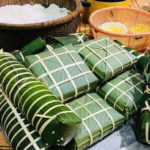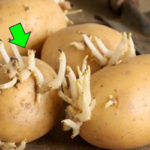Unlabeled Seeds: A Potential Health Hazard
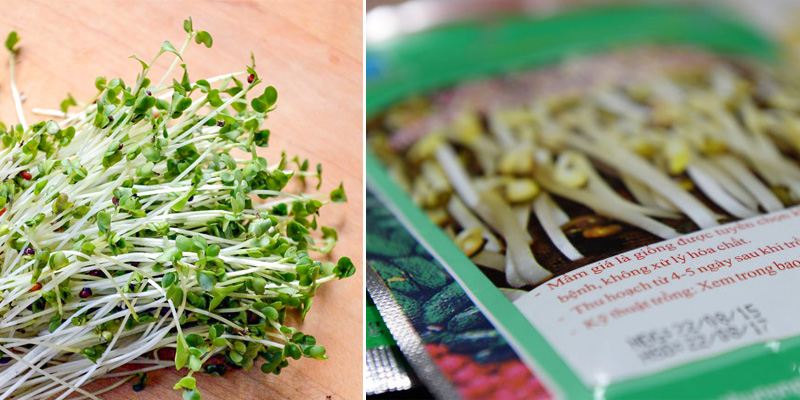
A variety of unlabeled sprout seeds are available in the market
Numerous seed traders offer sprout seeds, claiming they are imported from various countries, including China, Thailand, Australia, the US, and Vietnam. However, most of these seeds lack proper packaging, essential information about their production, and instructions on usage, storage, and cultivation.
Buyers often rely on the seller’s recommendations and guidance, leaving the quality and safety of the seeds entirely to the seller’s integrity.
A survey reveals that many sprout seeds are predominantly imported from China and are inexpensive, have a long shelf life, and produce higher yields, sweeter, and crispier sprouts compared to other seeds.
Cancer Risk from Unsafe Sprout Seeds
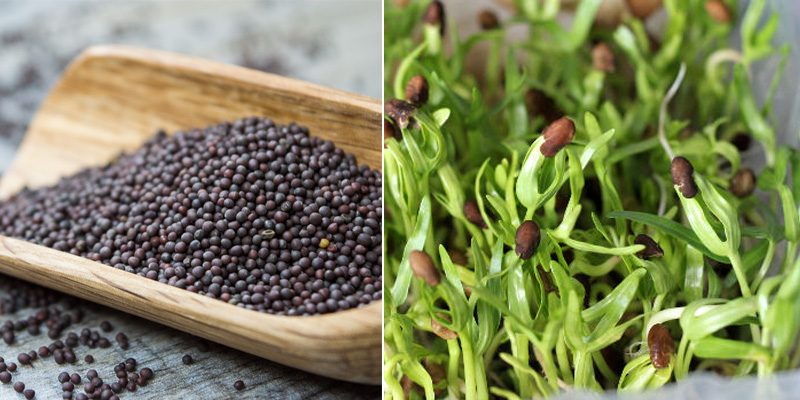
Unsafe seeds compromise the quality and safety of the sprouts
It is important to distinguish between sprout seeds and regular vegetable seeds.
– Sprout seeds only take 5-7 days to harvest, whereas vegetable seeds typically take around 15 days.
– This difference dictates distinct storage methods and cultivation techniques for each type of seed.
– Commonly, all seeds are treated with permitted preservatives to prevent mold and insect damage, ensuring safety and decomposition before harvest.
– However, using vegetable seeds for sprout production can be risky due to the short growing period. The chemicals may not have sufficient time to break down and could end up in the sprouts, leading to toxic effects and even cancer, especially since sprouts are mostly consumed raw.
– Choosing unlabeled sprout seeds of unknown origin and treated with unsafe or excessive amounts of chemicals poses a significant health risk.
– Moreover, sprouts are often grown in enclosed trays with high humidity and limited light, making them susceptible to fungal infections, which can spread rapidly. While experts recommend biological control methods, most commercial growers rely on chemical treatments, leaving chemical residues on the sprouts.
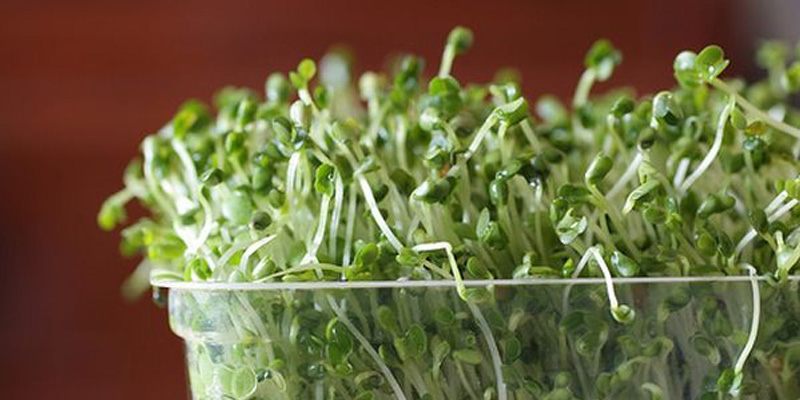
The benefits of sprouts depend on the seed quality and cultivation methods
In the US, sprouts are typically harvested and sold when they reach the three-leaf stage (two small side leaves and one central leaf). According to experts, this stage offers the highest nutritional value, and the three leaves help eliminate enzymes that may cause digestive issues.
Buyers and home gardeners should be aware of this critical stage to ensure optimal harvest and consumption.
Therefore, even when growing sprouts at home, selecting safe and properly labeled sprout seeds is essential to guarantee food safety during consumption and preparation.
For further reference:
Information source: tienphong.vn
8 Common Mistakes People Make with Cutting Boards
Are you using your cutting board correctly? Many Vietnamese households rely on cutting boards in their kitchen, but not everyone knows how to use them properly, especially when it comes to wooden cutting boards. Check out these 8 mistakes to avoid when using a cutting board to ensure both hygiene and safety for everyone in your family.
Is Refrigerated Leftovers Linked to an Increased Risk of Cancer?
Dr. Lam Van Man, Head of Research, Development and Technology Transfer Department of the Institute of Safety Food, has warned of the risk of food poisoning when reheating leftovers from the refrigerator. But what should we be aware of when it comes to the possibility of these leftovers causing cancer? Here, we explore what the experts have to say on the matter and offer some tips for safe eating.
Preserving Leftover Food from the Tet Holiday
With the beginning of the Lunar New Year, many households are stocking up on food to celebrate the festive occasion. While keeping food in the refrigerator is convenient, it can also be harmful to users if not done correctly. We have compiled a few tips to help ensure food remains fresh and safe to consume during Tet.


























